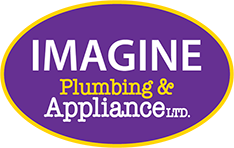The quality of the water available through your home taps can make a significant difference to the health of your family and those living inside the home, so it’s important that you learn as much as possible about water quality, and how to find the best water systems for the home. We have decades of experience helping homeowners throughout the region integrating the latest water filtration systems. In this new post, we’ll address the use of water softeners in the home and explain their value to you and your family.
The Function of a Water Softener
A water softener works by removing the elemental ions in the water that can cause hardness. Ions such as magnesium ions and calcium ions are removed during the water softening process. The goal is to remove elements that might clog pipes, and damage plumbing infrastructure, and improve the quality of the water available in the home.
What Are the Benefits of a Water Softener?
The following benefits are associated with using a water softener:
1.Preserve your plumbing
Water softeners help to preserve your plumbing systems and mitigate the potential for damage from hard water. Over time, the minerals from hard water will begin to accumulate within your plumbing, which can cause the breakdown of pipe structures and appliances throughout your property. Eventually, hard water will begin to clog your pipes and cause lasting damage in your home.
2. Keep skin and hair softer
The data shows that hard water can have a significant impact on our skin and hair. When we shower, minerals from hard water can damage our skin and make our hair feel dry and brittle. Skin can become depleted of its natural oils when you clean with hard water. This can then make your skin feel dry, cracked and itchy.
3. Minimize home cleaning time
Few of us truly enjoy cleaning the home after a long week of work, but when using hard water, you’ll often find that you spend more time cleaning the bathroom and kitchen areas. That’s because the minerals from the water can leave a buildup of materials in sinks and faucets. This accumulation of material can be exceptionally difficult to remove without heavy cleaners and can also damage your fixtures and appliances. Switching to softer water can minimize your cleaning needs and mitigate potential damage within high-value home systems.
Signs You Need a Water Softener
It’s not always simple to determine the true value that water filtration can bring to your property. One of the mistakes that many homeowners make is waiting until a problem exists before they turn to a filtration product. Here a few of the signs that you require a water softener in the home
Due to the minerals within the hard water, you may find that lime-scale is left behind from hard water around faucets and sinks.
2. Foul-smelling laundry
The hard elements within some water supplies can leave your laundry with a foul smell even after extensive washing.
3. Water spots on dishes
If you have water spots on dishes that won’t go away even after numerous rinse cycles, it could be a sign of a problem with hard water in your home.
4. Household appliance breakdown
Your household appliances can breakdown after contact with hard water. The structure around the appliance will wear due to water mineralization.
Tips for Choosing a Water Softener
Once you have determined that the issues within your home are related to the hardness of the water, you need to consider your options and evaluate the process of buying a water softener. When reviewing the latest water softeners on the marketplace, consider the following:
1.Consider your needs
How much water does your family use on a monthly basis? Make sure you analyze this question when choosing a water softener for your home. The average person uses 80 gallons of water per day, and so it’s important you size your water tank to correlate with the number of people using the system in your home. Another leading consideration is the diet of your family. Some water softeners require the use of salt, and so those on a low-salt diet should consider alternative softening products.
2.Manual or automatic regeneration?
Your water softener must regenerate periodically to retain its softening performance. Working with a qualified professional can help you to understand this process in detail. Those with manual softening regeneration processes will require more work over time. You may choose an automatic option if you wish to limit the amount of work involved in keeping your water softener running effectively.
3. Ease of use
While most water softeners come with relatively simple instructions for use around the home, it’s important that you consider the ease with which you can use the product. Learn about how to replenish the system, either with potassium chloride or salt, and the steps involved to complete the replenishing process. Your local plumbing company can help to guide you through the options available and help you make the right choice for the long-term.
To learn more about water softening options for your home or business, call Imagine Plumbing at 409-612 500 or contact us here.


